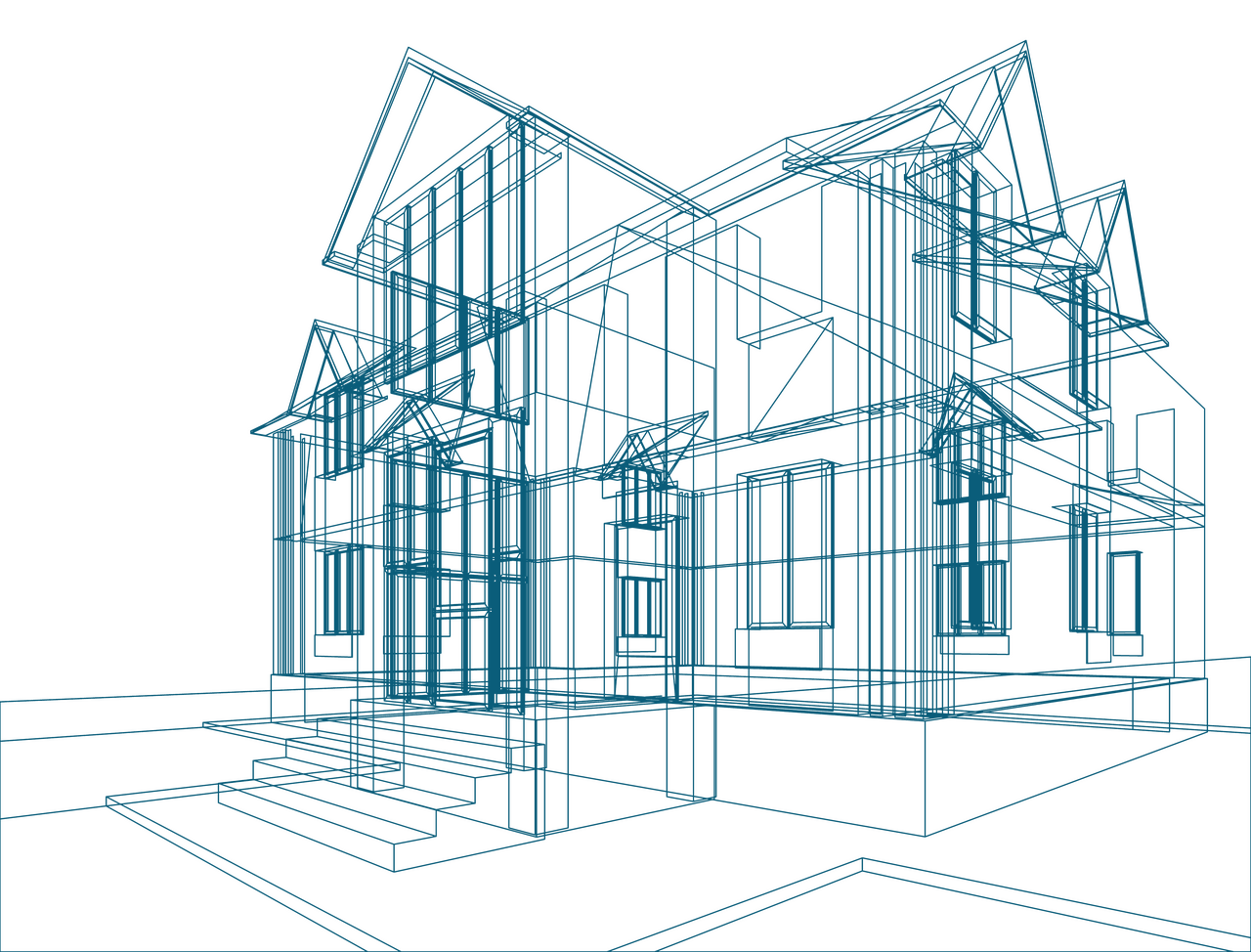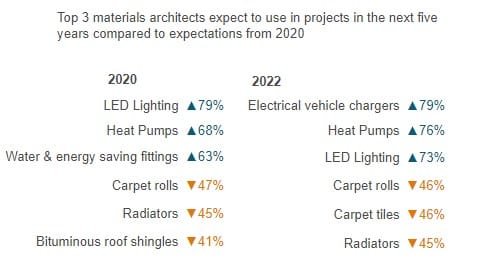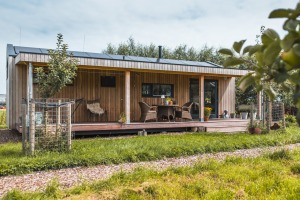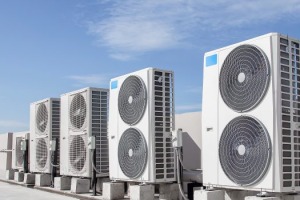

Nieuws I gepubliceerd 21 December 2023 I Dirk Hoogenboom
Duurzame bouwtrend: architecten blijven minder maar duurzamere materialen gebruiken
Major trends in the construction and installation sector, as well as in society at large, ultimately affect the choices for materials and products used to construct the buildings around us. Because of their involvement in early stages of the construction process, architects have a high prediction value for many trends in the construction and installation sector, including trends and developments in materials used for building construction in all its facets.
That is why every other year, we dedicate one quarterly report of USP Marketing Consultancy’s European Architectural Barometer to material usage in building construction. For that report, we measure architects’ expectations of materials specified for building construction in the coming five years to construct a clear picture of the developments in materials used. Based on our interviews with architects from eight European countries in the second quarter of 2022, we can conclude that architects generally expect to specify and use fewer materials in the coming years.
Architects expect to use fewer materials
Across all countries, architects expect to use fewer materials for certain purposes or elements of a building. That is, they expect to use a smaller variety of types of construction materials.Those expectations started to appear in our measurement in 2020. In the 2022 measurements, we see that for the coming years, architects generally continue to expect using a smaller variety of materials.
This is the case for many materials in the ten product groups or building parts we interviewed architects about. Looking at building façades, for instance, architects expect to specify less concrete, plaster, architectural glass, metal and fewer bricks and external drywall systems. The only product type they expect to specify more is façade panels. A similar expected reduction of the majority of specified materials can be seen in both pitched and flat roof materials, flooring materials, metals in general, and quite a few materials used for the building envelope.

Exceptions show the quest for sustainability
Given that architects generally expect to specify fewer materials, it is more interesting to look at the exceptions to that statement. Doing so, it becomes clear that the common denominator for most of the materials that architects actually expect to specify more in the years to come is sustainability. Since buildings and building construction use up many resources and are major contributors to annual emissions of greenhouse gasses and pollution, it stands to reason that efforts are taken to make this sector more sustainable.
That sustainability trend is reflected by the few product or building part categories in which a majority of materials are actually expected to be specified more. In the category of insulation, for instance, architects expect to specify all types of insulation material more, except for polystyrene foams. As for installations and climate control, architects also expect to specify all sorts of materials and systems more, except for gas boilers and radiators.
The sustainability trend is not just reflected by better insulation, more heat pumps and fewer gas boilers, however. Looking at other categories, we see that architects expect to opt more often for renewable materials like timber, and fewer plastics and other oil-based materials. These are but few examples of the long list of materials we asked architects from eight European countries about. For a full overview of expected developments in materials used for building construction, we refer you to the Q2 2022 report of USP Marketing Consultancy’s European Architectural Barometer.

Lees verder


13 augustus 2024 I Veerle Forschelen-Janssen
Tiny houses blijven populair, aantal projecten neemt gestaag toe


31 juli 2024 I Dirk Hoogenboom
Hoe ontwikkelt de markt zich voor ‘smart & connected products?


18 juli 2024 I Dirk Hoogenboom
Investeringsbereidheid Europese consumenten voor de verduurzaming van hun huis in 2024 lager dan in 2023


02 juli 2024 I Dirk Hoogenboom
BIM-adoptie onder Europese HVAC-installateurs blijft laag

Verse inzichten staan klaar
Onze relevante rapporten
Bekijk onze meest recente marktrapportages voor de bouw-, installatie- en doe-het-zelfmarkt, gebaseerd op solide kwantitatief onderzoek.
Bouw
Doe-het-zelf
Installatie
Speciale rapporten
Bouw
Trends in materiaalgebruik Q1 2024
2024 102 paginas
Ontdek de evoluerende trends in materiaalgebruik onder Europese architecten in Q1 2024. Duik in de factoren die materiaalvoorkeuren bepalen en de impact op de esthetiek en duurzaamheid van de bouw.
2,000 euro
Bouw
Media-oriëntatie H2 2021
2024 161 pagina's
Verken de media-betrokkenheidspatronen van aannemers om uw marketingstrategieën te optimaliseren. Duik in een pool van inzichten die onthult hoe aannemers omgaan met verschillende mediakanalen.
6,300 Euro
Bouw
European Green Deal Q4 2021
2024 88 pages
Explore the impact and reception of the European Green Deal among architects. Understand how the initiative is influencing architectural practices and sustainability measures.
1,850 Euro
Bouw
Koop kanalen H2 2023
2024 123 pagina's
Ontdek het koop- en bestelgedrag onder aannemers in H2 2023. Ontdek de belangrijkste gebruikte kanalen, share-of-wallet en nog veel meer.
6,000 Euro
Bouw
Prefab in aanbouw Q3 2023
2023 90 pagina's
Verdiep je in de invloedrijke rol van aannemers binnen de besluitvormingseenheden van de bouw. Onderzoek de dynamiek en de mate van impact die aannemers hebben bij cruciale bouwbeslissingen.
1,850 Euro
Bouw
Gedragssegmentatie en mediagebruik 2023
2023 75 pagina's
Dit rapport geeft een uitgebreid overzicht van koopgedrag, producten en mediagebruik, specifiek gericht op Europese klusjesmannen. Het gaat in op hoe klussers media gebruiken, en voor welke doeleinden, en onderzoekt hun gewoonten en voorkeuren op het gebied van koopgedrag.
8,600 Euro
Doe-het-zelf
Branding Q3 2024
2024 74 pages
Discover the power of branding in the home improvement sector. Explore how strong branding influences consumer preferences and purchase decisions.
3,500 Euro
Doe-het-zelf
Sustainability Q1 2024
2024 81 pages
Delve into sustainability trends in the home improvement sector in Q1 2024. Discover consumer preferences and the shift towards eco-friendly home improvement solutions.
3,500 Euro
Doe-het-zelf
DIY versus DIFM Q4 2021
2024 113 pagina's
Dit rapport is een must-have als u in de woningverbeteringsindustrie werkt. Het biedt een schat aan informatie over het gedrag van doe-het-zelf- en DIFM-consumenten, hun motivaties en de factoren die hun aankoopbeslissingen beïnvloeden.
3,150 Euro
Doe-het-zelf
Doe-het-zelf of doe-het-voor-mij Q4 2023
2024 70 pagina's
Ontdek de heersende trends tussen doe-het-zelf en DIFM in Q4 2023. Begrijp de voorkeuren van de consument en de factoren die van invloed zijn op hun keuze tussen doe-het-zelf en DIFM.
3,500 Euro
Doe-het-zelf
Branding Q3 2023
2023 93 pagina's
Dit rapport biedt een uitgebreid overzicht van de doe-het-zelfbranche, met een focus op branding en de meest populaire merken binnen verschillende categorieën. In dit rapport krijgt u inzicht in hoe klanten merken voor woningverbetering ervaren en wat hen motiveert om bepaalde producten te kopen.
3,500 Euro
Doe-het-zelf
Inkoop kanalen Q2 2023
2023 114 pagina's
De European Home Improvement Monitor biedt waardevolle inzichten in aankoopkanalen in de Europese doe-het-zelfsector en onderzoekt de veranderende voorkeuren en gedragingen van consumenten in de traditionele detailhandel en opkomende online platforms.
3,500 Euro
Installatie
Duurzaamheid Q1 2024
2024 99 pagina's
Het European Electrical Installation Monitor rapport geeft een gedetailleerde analyse van de duurzame oplossingen in de installatiebranche. Dit rapport richt zich specifiek op duurzaamheidsaspecten in de industrie.
3,250 Euro
Installatie
Challenges toward sustainable future Q4 2021
2024 111 pages
2,650 Euro
Installatie
Inkoop kanalen Q4 2021
2024 106 pagina's
Verdiep je in de opleidingsbehoeften binnen de elektrotechnische installatiesector. Begrijp de gebieden die de ontwikkeling van vaardigheden vereisen om aan de veranderende eisen van de industrie te voldoen.
3,150 Euro
Installatie
Opleidingsbehoeften Q4 2023
2024 110 pagina's
Dit rapport onderzoekt de opleidingsbehoeften van installateurs, zowel digitaal als persoonlijk. Het volledige rapport behandelt alle belangrijke opleidingsbehoeften en -aspecten en biedt een uitgebreid overzicht van de bedrijfsontwikkeling in de installatiesector in belangrijke Europese landen.
2,800 Euro
Installatie
Inkoop kanalen Q4 2023
2024 97 pagina's
Dit rapport biedt een uitgebreid overzicht van het koop- en bestelgedrag van e-installateurs in Europa. In het rapport vind je belangrijke informatie over de inkoopkanalen die installateurs gebruiken, de share-of-wallet per kanaal, de manier van bestellen en nog veel meer.
3,250 Euro
Installatie
Inkoop kanalen Q3 2023
2023 106 pagina's
Dit rapport geeft een uitgebreid beeld van de houding van installateurs ten opzichte van aankoopkanalen, met name onder HVAC-installateurs. In het rapport vind je inzichten in koopgedrag, welke kanalen het meest worden gebruikt, welke groeien en of online kanalen steeds meer geaccepteerd worden.
2,800 Euro









